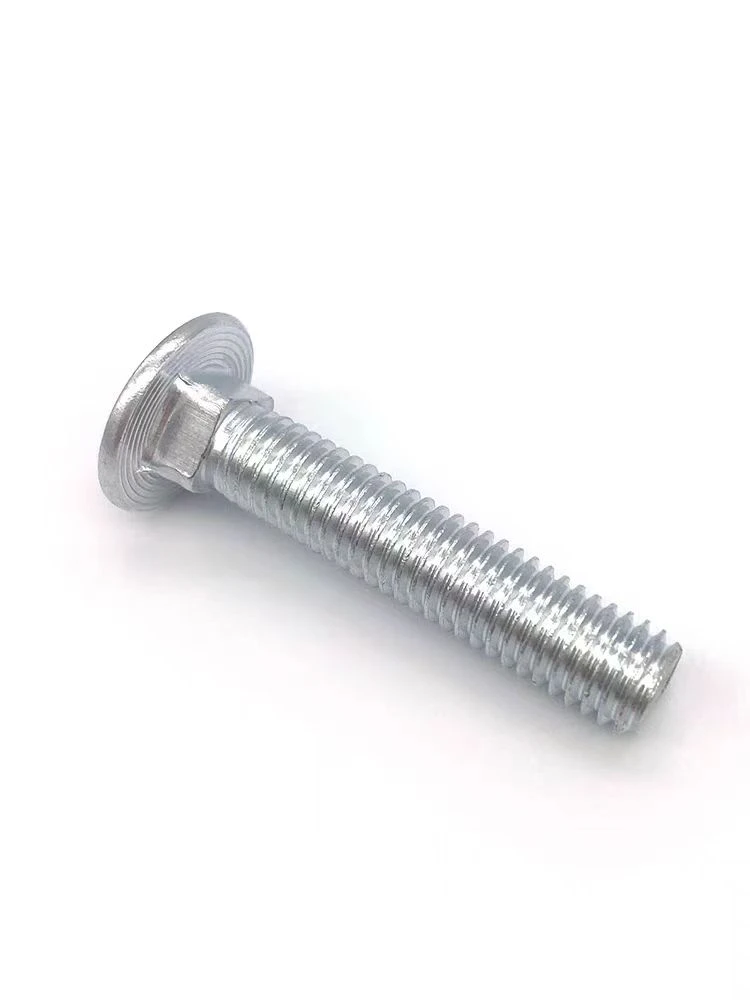

Small Durable Stainless Steel Washers for Versatile Applications and Enhanced Performance
Dis . 04, 2024 04:43 Back to list
Small Durable Stainless Steel Washers for Versatile Applications and Enhanced Performance
The Versatile World of Small Stainless Steel Washers
In the vast landscape of mechanical components, small stainless steel washers may seem like inconspicuous elements. However, these tiny discs play a crucial role in various applications across multiple industries. Their primary function is to distribute loads, providing stability and preventing damage to surfaces. This article explores the many facets of small stainless steel washers, their types, applications, and the benefits they bring to engineering and manufacturing.
Understanding Washers
Washers are flat, typically circular pieces of material that are used in conjunction with bolts, nuts, and screws. Their primary purpose is to spread a load over a larger area, reducing the likelihood of damage to the surface being fastened. Washers come in various shapes and materials, but stainless steel washers are particularly popular due to their corrosion resistance, durability, and strength.
Types of Small Stainless Steel Washers
Small stainless steel washers can be categorized into several types, each serving specific purposes. The most common types include
1. Flat Washers These are the most basic type of washer, designed to provide a flat surface for a bolt or screw head to bear against.
2. Lock Washers These washers are designed to prevent loosening under vibrations or rotational forces. There are several variations, including split lock washers and tooth lock washers.
3. Oversized Washers These larger washers distribute load over a wider area, making them useful in applications where the surface material is softer or prone to damage.
4. Fender Washers These have a larger outer diameter but a standard inner diameter. They are often used in applications where a larger surface area is beneficial.
5. Shim Washers These are specifically designed to adjust the spacing or height of a component, effectively compensating for any gaps or misalignments.
Applications of Small Stainless Steel Washers
The applications of small stainless steel washers are diverse and widespread. They are integral to various sectors, including
small stainless steel washers

- Automotive Industry In vehicles, these washers are used to secure bolts in place and prevent them from loosening due to vibrations experienced during driving
.- Construction Stainless steel washers ensure that connections in structural applications are tight and resilient against environmental conditions, making them ideal for outdoor use.
- Electronics In electronic devices, small washers aid in grounding and ensure that components remain securely fastened, maintaining the integrity and safety of the device.
- Manufacturing and Machinery In heavy machinery, stainless steel washers are crucial for assembling components and preventing wear and tear on surfaces due to constant friction.
Benefits of Using Small Stainless Steel Washers
The use of small stainless steel washers offers several advantages
1. Corrosion Resistance Stainless steel is inherently resistant to rust and corrosion, making these washers suitable for both indoor and outdoor environments.
2. Strength Stainless steel washers can withstand high levels of stress and pressure, ensuring long-lasting performance in demanding applications.
3. Versatility With various types and sizes available, small stainless steel washers can be utilized in a range of applications, from delicate electronic devices to heavy machinery.
4. Cost-Effectiveness Their durability and resistance to corrosion contribute to the overall lifespan of assembled products, reducing the need for frequent replacements.
Conclusion
Small stainless steel washers may be diminutive in size, but their impact on engineering, manufacturing, and construction is profound. Their ability to distribute loads, prevent damage, and offer corrosion resistance makes them essential components across numerous industries. Crafting reliable and efficient solutions in assembly processes, these washers exemplify the importance of even the smallest parts in the grand scheme of mechanical design and functionality. As technology continues to advance, the role of these washers remains as crucial as ever, highlighting the intricate balance of engineering precision and practical application.
Latest news
-
Premium Self Tapping Metal Screws: Strong & Easy Install
NewsAug.02,2025
-
Premium Fasteners Manufacturer | AI-Driven Solutions
NewsAug.01,2025
-
Hot Dip Galvanized Bolts - Hebei Longze | High Strength, Corrosion Resistance
NewsAug.01,2025
-
High-Strength Hot Dip Galvanized Bolts - LongZe | Corrosion Resistance, Custom Sizes
NewsAug.01,2025
-
Best Self Tapping Screws for Drywall - Fast & Secure Installation
NewsJul.31,2025
-
High-Strength Hot Dip Galvanized Bolts-Hebei Longze|Corrosion Resistance&Customization
NewsJul.31,2025

